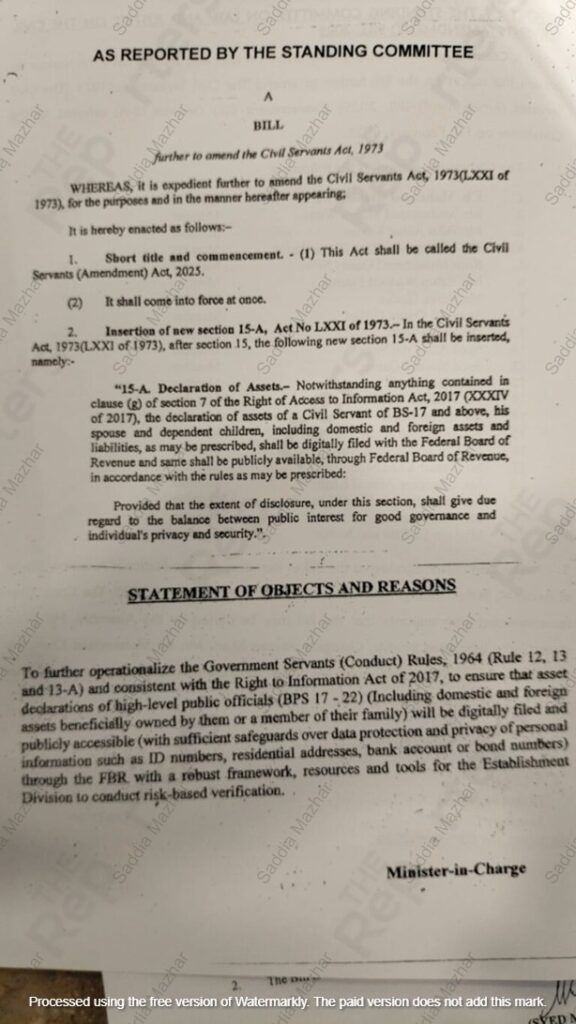National Assembly Passes Amendment Requiring Civil Servants to Publicly Declare Assets

Islamabad — The National Assembly has passed a key amendment to the Civil Servants Act, making it mandatory for civil servants to publicly declare their own assets as well as those of their immediate family members. The amendment aims to strengthen transparency and accountability in Pakistan’s bureaucracy.
As part of Thursday’s legislative proceedings, the Assembly approved the addition of Clause 15-A to the Civil Servants Act. Under the revised law, civil servants in grades 17 to 22 will be required to disclose all domestic and foreign assets, including those belonging to their spouse and dependent children. These declarations must be submitted to the Federal Board of Revenue (FBR) and will be made public.
While this appears to be a fresh move toward accountability, Section 13-A of the Civil Servants Act had already mandated similar disclosure for senior officials. However, the Establishment Division has been widely criticized for failing to implement this provision. It has neither effectively collected asset declarations from a large number of bureaucrats nor made the submitted data public — even after repeated requests under the Right of Access to Information Act.
One such request was filed by investigative journalist Sadia Mazhar, who fought a year-long legal battle to obtain information that the Establishment Division was legally required to provide within 10 days. The data finally released revealed widespread non-compliance among senior civil servants across multiple service groups.
According to the information provided:
-
Out of 914 officers in the Police Service Group, 202 officers failed to fully declare their assets — the highest among all groups.
-
The Pakistan Administrative Service (PAS) followed, with 109 out of 914 officers not fully disclosing their assets.
-
In the Office Management Group (OMG), 25 out of 590 officers failed to comply.
-
From the Secretariat Group, 4 out of 402 officers did not submit full declarations.
In total, 340 officers across these four service groups — which fall under the Establishment Division’s jurisdiction — failed to disclose complete asset details. The Establishment Division, under existing civil service rules, is legally bound to make these asset records public, yet has not fulfilled this obligation.
In August 2023, promotions of 65 officers were withheld due to failure to file complete asset declarations, yet systemic enforcement remains weak.
With the new amendment now in place, there is renewed pressure on the government machinery to finally implement its own laws and bring transparency to the civil service — a demand long echoed by civil society, journalists, and reform advocates.







